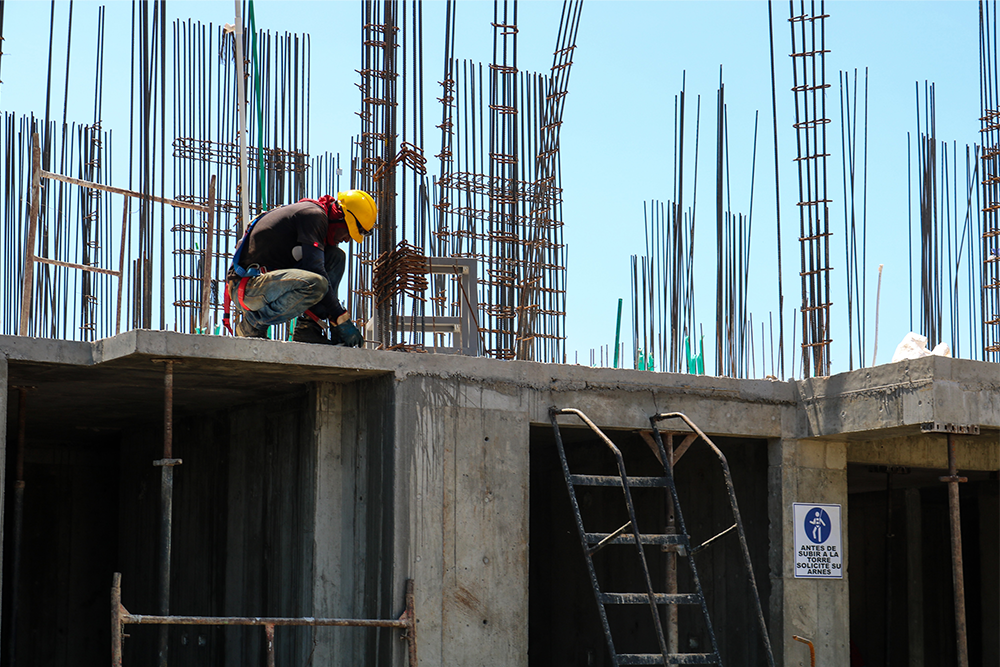Articles
Filter by
196 results found
Articles
Inflation continues to soar globally, the IMF forecasts inflation will rise from 4.7 percent in 2021 to 8.8 percent in 2022. In India, wholesale inflation has remained in double digits for more than a year. The IMF now expects global growth to slow from 6.0 percent in 2021 to 3.2 percent in 2022 and 2.7 percent in 2023.
Read time: 6 minutes
Published
22 Jun 2022
View article


Articles
Infrastructure is key to achieving fair and sustainable economic growth and climate targets. Three trends to stimulate the private sector to fund the large-scale change to enable infrastructure to reach its climate and development potential
Read time: 4 minutes
Published
27 Jul 2022
View article


Articles
Nicholas Yandle, Head of Programmes - Project Futures, UK IPA shares insights on their recent Roadmap, exploring ways to achieve digitalisation, standardised approaches and carbon emissions reductions when it comes to infrastructure delivery.
Read time: 6 minutes
Published
06 Jul 2022
View article


Articles
The COVID-19 pandemic boosted investors’ interest in digital infrastructure and digital services. Policymakers have an opportunity to amplify these effects by accelerating market reforms
Read time: 5 minutes
Published
08 Jun 2022
View article


Articles
To seize the opportunities of this critical moment and increase private investment in infrastructure LMICs can implement a series of actions. The creation of a regulatory and institutional framework which promotes private investment or the development of solid project pipelines.
Read time: 4 minutes
Published
29 Apr 2022
View article


Articles
To celebrate International Women’s Day 2022, we interviewed three female leaders at the GI Hub to explore how we can collectively #BreakTheBias and address inequality in infrastructure. The third Q&A in this series is with Monica Bennett, GI Hub’s Director of Thought Leadership.
Read time: 5 minutes
Published
30 Mar 2022
View article


Articles
Private investment in infrastructure remained stagnant for the eighth year in a row. Three trends to inform future policies to fund the significant shift to enable infrastructure to reach climate targets and address global inequalities.
Read time: 5 minutes
Published
12 Oct 2022
View article


Articles
The last decade has seen a growing investor appetite toward sustainable infrastructure investments. However, there are challenges to accelerating these investments at the speed and scale needed. In this article we explore two projects - the Tibar Bay Port in Timor-Leste and the Clean Ganga Program in India - that illustrate how these challenges can be overcome.
Read time: 6 minutes
Published
14 Jul 2022
View article


Articles
The GI Hub recently hosted a webinar that provided participants with a data-informed understanding of the state of infrastructure investment. In this article we present the main takeaways from the event.
Read time: 5 minutes
Published
30 Jun 2022
View article


Articles
Integrating ESG into infrastructure decisions requires a systematic and verifiable governance (implementation) approach of a projects ability to reduce environmental and social risk alongside long-term value for investors
Read time: 4 minutes
Published
19 May 2022
View article


Articles
Achieving the United Nations Sustainable Development Goals will require massive investment in developing countries. Blended finance, which combines concessional public funds with commercial funds, can be a powerful means to direct more commercial finance toward impactful investments that are unable to proceed on strictly commercial terms
Read time: 5 minutes
Published
27 Apr 2022
View article


Articles
Equity and debt performance show that infrastructure as an asset class provides attractive and resilient returns for investors and unlisted infrastructure equities generated the highest returns and risk-adjusted returns.
Read time: 5 minutes
Published
18 Mar 2022
View article


Articles
How sustainable infrastructure is a key enabler of the transition to a low-carbon economy and an important driver of resilient, inclusive growth
Read time: 6 minutes
Published
16 Aug 2022
View article


Articles
Ahead of the G20 Finance Ministers and Central Bank Governors meeting this week, GI Hub CEO Marie Lam-Frendo provides insights into the actions we’re helping advance in our work with the G20.
Read time: 5 minutes
Published
11 Jul 2022
View article


Articles
Open data is another aspect of digitalisation that is gaining traction. This blog explores the importance of open data to infrastructure delivery and offers some practical steps for decisionmakers in the public and private sector to implement and utilise open data.
Read time: 4 minutes
Published
22 Jun 2022
View article


Articles
The GI Hub began examining the regulatory capital treatment of infrastructure investments in 2019, as part of our initiative to address barriers to the establishment and advancement of infrastructure as an asset class
Read time: 4 minutes
Published
12 May 2022
View article


Articles
Kathrin Heitmann, CFA, Vice President - Senior Credit Officer, Global Infrastructure and Project Finance Group, Moody's Investors Service explores data-related findings that highlight how project and infrastructure debt continued to perform well during the COVID-19 pandemic.
Read time: 5 minutes
Published
07 Apr 2022
View article


Articles
To celebrate International Women’s Day 2022, we interviewed three female leaders at the GI Hub to explore how we can collectively #BreakTheBias and address inequality in infrastructure. The second Q&A in this series is with Cinthya Pastor, GI Hub’s Director of Economics.
Read time: 4 minutes
Published
18 Mar 2022
View article






















